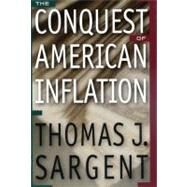The Conquest of American Inflation
, by Sargent, Thomas J.- ISBN: 9780691090122 | 0691090122
- Cover: Paperback
- Copyright: 11/12/2001
In the past fifteen years, inflation has been conquered by many advanced countries. History reveals, however, that it has been conquered before and returned. InThe Conquest of American Inflation,Thomas J. Sargent presents a groundbreaking analysis of the rise and fall of U.S. inflation after 1960. He examines two broad explanations for the behavior of inflation and unemployment in this period: the natural-rate hypothesis joined to the Lucas critique and a more traditional econometric policy evaluation modified to include adaptive expectations and learning. His purpose is not only to determine which is the better account, but also to codify for the benefit of the next generation the economic forces that cause inflation. Sargent begins with an explanation of how American policymakers increased inflation in the early 1960s by following erroneous assumptions about the exploitability of the Phillips curve--the inverse relationship between inflation and unemployment. In subsequent chapters, he connects a sequence of ideas--self-confirming equilibria, least-squares and other adaptive or recursive learning algorithms, convergence of least-squares learners with self-confirming equilibria, and recurrent dynamics along escape routes from self-confirming equilibria. Sargent synthesizes results from macroeconomics, game theory, control theory, and other fields to extend both adaptive expectations and rational expectations theory, and he compellingly describes postwar inflation in terms of drifting coefficients. He interprets his results in favor of adaptive expectations as the relevant mechanism affecting inflation policy. Providing an original methodological link between theoretical and policy economics, this book will engender much debate and become an indispensable text for academics, graduate students, and professional economists.







